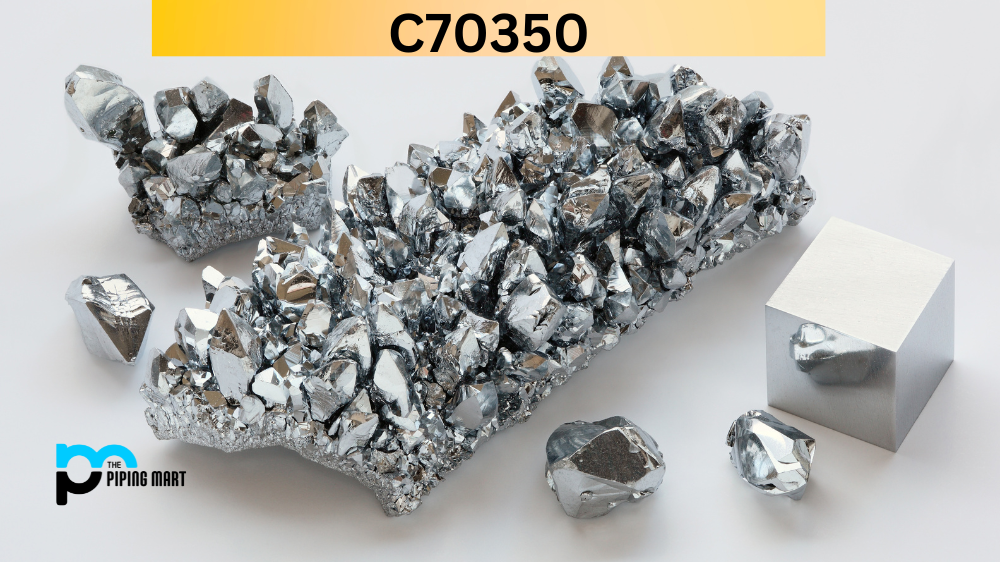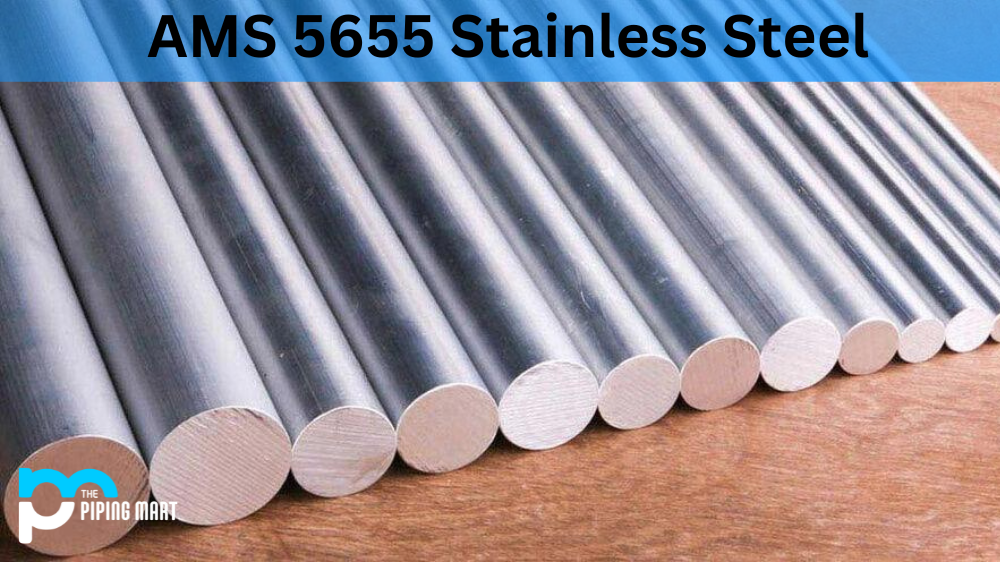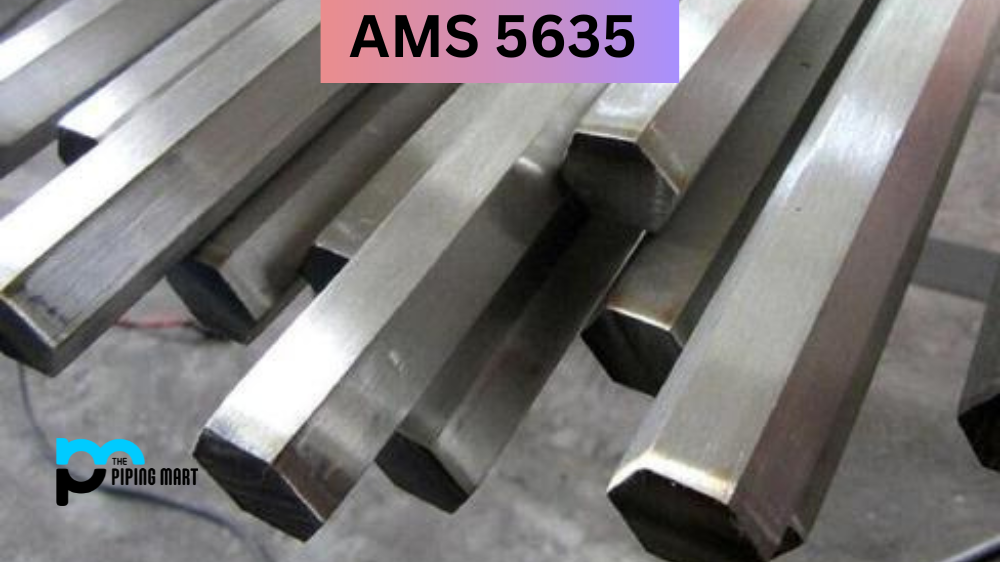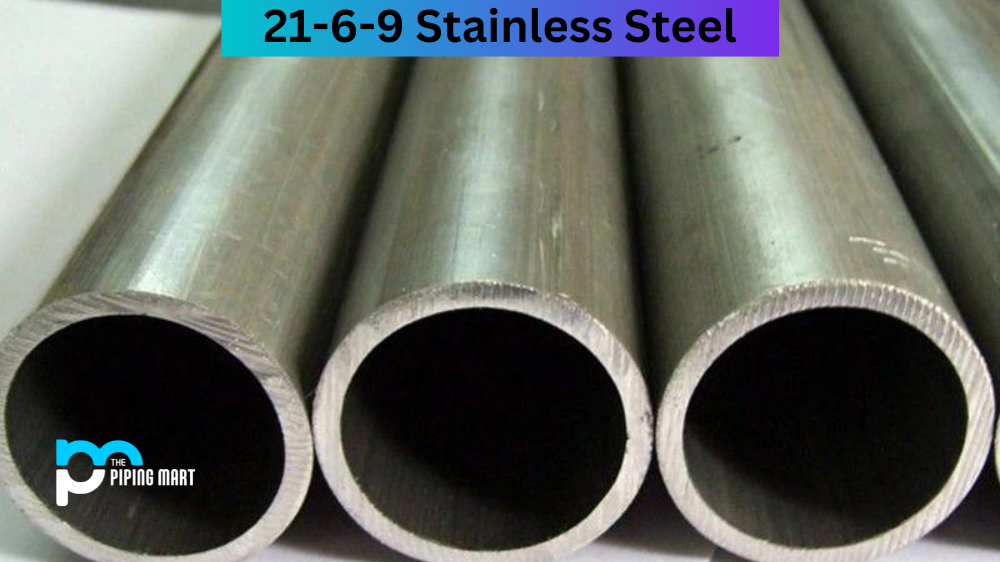The construction and engineering sectors rely on various metal alloys to build reliable and durable structures and machinery. C70350 is one such alloy. Its excellent balance of physical and mechanical properties has gained popularity, making it ideal for many applications. This blog post will closely examine C70350 and explore its composition, properties, and typical uses. Let us dive in!
C70350 Composition
C70350 is an aluminium bronze alloy that comprises copper, aluminium, iron, and nickel. The alloy’s composition offers excellent corrosion resistance, making it ideal for use in marine environments. This alloy also exhibits a high level of resistance to stress corrosion cracking, which results from exposure to chlorides and other corrosive agents, making it useful in environments where such exposure is common.
| Elements | Content (%) |
|---|---|
| Nickel, Ni | 1.0-2.5 |
| Cobalt, Co | 1.0-2.0 |
| Zinc, Zn | 1.0 |
| Silicon, Si | 0.50-1.2 |
| Iron, Fe | 0.2 |
| Manganese, Mn | 0.2 |
| Lead, Pb | 0.05 |
| Magnesium, Mg | 0.04 |
| Copper, Cu | Remainder |
C70350 Physical Properties
One of the most remarkable physical properties of C70350 is its high density, measured at 7.7 g/cm3. Additionally, this alloy has excellent thermal conductivity, making it a suitable option for heat exchangers. Its high electrical conductivity makes it an excellent choice for electrical contacts and connectors.
| Melting point [℃] | 1095 |
|---|---|
| Density [g/cm3@20℃] | 8.82 |
| Thermal expansion coefficient [10-6/K@20-300℃] |
17.6 |
| Volume resistivity [μΩ・m] | 3.4x10-2 (TM04) |
| Thermal conductivity [W/m・K@20℃] |
200 (TM04) |
| Young’s modulus [kN/mm2] | 120 (TM04) |
| Poisson’s ratio | 0.33 |
| Magnetic properties | Non-magnetism |
C70350 Mechanical Properties
Regarding mechanical properties, C70350 has excellent wear resistance, making it suitable for use in heavy-duty equipment. It also exhibits high tensile and yield strength, allowing it to withstand significant loads without breaking down. Its hardness is Rockwell B80-95, making it tough and durable.
| Temper | Tensile strength (typical value) [N/mm2] |
0.2 % yield strength [N/mm2] |
Elongation (typical value) [%] |
Vickers hardness (typical value) [HV] |
Electrical conductivity (typical value) [%IACS] |
|---|---|---|---|---|---|
| TR04 | 640 | 540-680 | 4 | 190 | 60 |
| TM02 | 800 | 675-780 | 8 | 245 | 50 |
| TM04 | 830 | 750-850 | 6 | 255 | 50 |
| TM06 | 875 | 810-920 | 4 | 265 | 45 |
| XE | 980 | 880-1040 | 3 | 295 | 40 |
| XS | 1030 | 940-1100 | 2 | 310 | 40 |
C70350 Uses
C70350 has several common applications, including use in pumps, bearings, valve components, and propellers. It is also suitable for gears and heat exchangers, especially where high corrosion resistance and thermal conductivity are required.
C70350 Heat Treatment
C70350 can be heat-treated for improved strength and wear resistance. Heat treatment also improves the alloy’s machinability, making it easier to work with. Welding C70350 is also possible, but it requires preheating to avoid cracking, and post-weld heat treatment may also be necessary.
C70350 Corrosion Resistance
C70350 exhibits remarkable corrosion resistance, making it ideal for use in marine environments. However, it may react with certain acids and bases, leading to corrosion. As such, it is essential to consider the environment in which it will be used when selecting this alloy.
Conclusion
In summary, C70350 is an excellent choice for applications that require high corrosion resistance, wear resistance, and strength. Its physical and mechanical properties make it a versatile option for the construction and engineering sectors. Its high density and thermal conductivity allows it to perform well in heat exchangers, while its high electrical conductivity makes it ideal for electrical contacts and connectors. But despite its excellent properties, carefully considering the environment in which it will be used is crucial in selecting this alloy. Overall, C70350 is a reliable and durable alloy with excellent properties, making it a worthy addition to any engineer’s materials inventory.

Abhishek is a seasoned blogger and industry expert, sharing his insights and knowledge on various topics. With his research, Abhishek offers valuable insights and tips for professionals and enthusiasts. Follow him for expert advice on the latest trends and developments in the metal industry.




